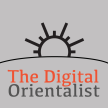Several weeks ago, I had a discussion with a rather unhappy senior colleague about the current state of digital Islamic studies. His main complaint was that he wanted to learn more about digital humanities techniques in order to apply them to his own research, but was finding it very difficult to do so. The main reason for this was, he said, that he had tried to teach himself some of the things he wanted to learn, but found it essentially impossible to do so using online tutorials because most were years old and had since become outdated and, for someone with little real knowledge of coding or similar, it was difficult to make the required changes to the lesson to make the functionality work as it should do.
At first I dismissed his point because I considered that, despite the various problems described, there was enough online material to be able to provide sufficient guidance to a beginner in a subject to overcome them. However, eventually I decided to test his theory to see whether there was any merit to it. In order to do so, I attempted to learn a new digital humanities skill using only what I could find online. Precise details of my attempts will go into a future post, but suffice it to say that it did indeed prove impossible. While there were several guides to the process, there was so much technical language employed by the various authors of online guides in each lesson that it was not possible to fully understand the process, and where it was possible the step-by-step guide was so outdated that it no longer properly described how to carry out the procedure.
The other point my colleague made was there were very few opportunities for him to learn the things he wanted to through more traditional, and much more effective, workshops on the subject. Those that he had wanted to go to were almost always aimed at PhD students or early career scholars, not mid- or later career scholars, to the extent that many specifically ban the latter from attending, as if they should not be able to learn this knowledge. Furthermore, gaining enough knowledge of this type outside of such workshops would require an amount of in-depth training impossible given current research, teaching, and administrative responsibilities.
From this short encounter, a problem in digital humanities grew more apparent, something not limited to Islamic studies but which is no doubt encountered in all fields: the very real, and growing, disconnect between the academic arena in which digital humanities scholars carry out their work and the fields of more traditional scholarship such as history, religious studies, etc. In theory, the latter know that the results of the work carried out in the former would be extremely useful for their own research, but it is close to impossible to access it. More and more, it seems that digital humanists are keeping the results of their research to themselves; not deliberately, as much of it is shared and advertised, but because they have forgotten how little understanding of even comparatively basic operations there is among non-experts. This is exacerbated by the failure of universities, especially those in the West, to provide enough time to their academics to learn new skills. If digital humanities is to reach its full potential, there needs to be a change in how that field interacts with others; primarily, its practitioners should not mainly limit themselves to going to conferences where they engage with other digital humanists and to publishing in journals for the same audience which certainly seems to be the case now. Instead, there should be a more inclusive approach, from both sides, to allow researchers in all fields to benefit from the new possibilities digital humanities allows for. More on this will follow in future posts…

One thought on “The Divergence between Digital Humanities and Traditional Academic Fields: Some Initial Points”